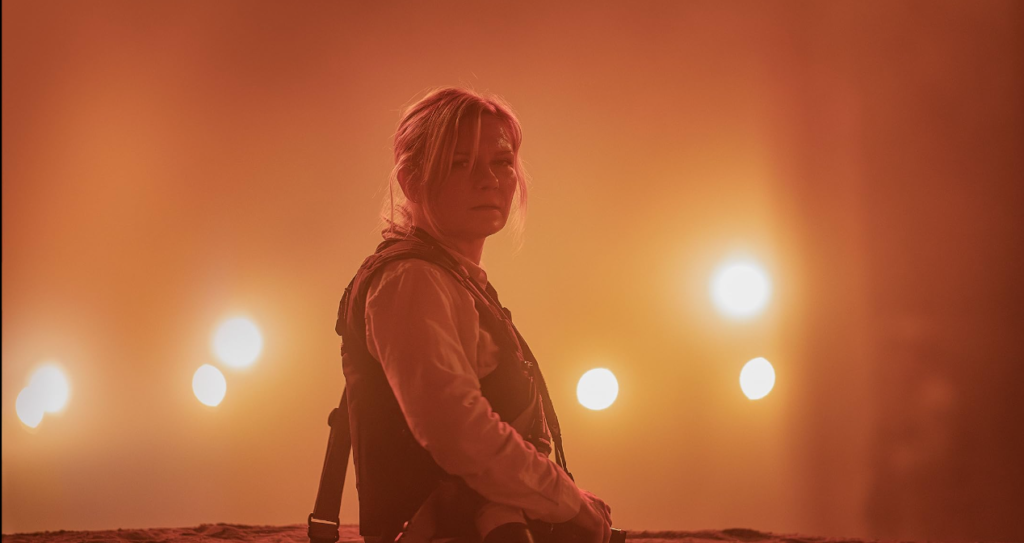
Alex Garland’s “Civil War” throws viewers headfirst into a chilling vision of a divided America. It’s not a comfortable watch, but its unflinching portrayal of a nation at war with itself is undeniably thought-provoking.
The film centers around a team of journalists embedded with a group on the frontlines. We follow Lee Smith (Kirsten Dunst), a seasoned war photographer hardened by years of witnessing atrocities. Dunst delivers a raw and powerful performance, showcasing the emotional toll this relentless exposure has taken on Lee. Beside her is Jessie (Cailee Spaeny), a wide-eyed newcomer yearning to emulate Lee’s courage. Their contrasting perspectives on war and journalism create a fascinating dynamic.
Their journey takes them through a devastated landscape. Gone is the familiar America; instead, they encounter scenes of chaos and desperation. Garland doesn’t shy away from the brutality. He depicts violence with a stark realism, forcing viewers to confront the human cost of conflict. A particularly disturbing scene involves a civilian mob scene, where a woman explodes herself amidst the chaos. Lee, ever the professional, captures the carnage on camera, highlighting the complex and often troubling role of the media in documenting war.
“Civil War” isn’t just about the physical devastation. It delves deeper, exploring the psychological impact of societal division. The journalists themselves become entangled in a moral quagmire. Their job demands they remain neutral observers, yet their presence can inadvertently influence events. The film raises questions about objectivity in journalism and the ethics of profiting from conflict.
Garland masterfully utilizes contrasting visuals. He juxtaposes the idyllic Americana of a deserted Winter Wonderland with the grim realities of war, emphasizing the fragility of normalcy. The film is bathed in natural light, a stark departure from the gritty filters often associated with war movies. This stylistic choice forces viewers to confront the horror head-on, without the veil of cinematic distance.
The story takes a nightmarish turn when the journalists encounter a charismatic but unsettling figure played by Jesse Plemons. His chilling interrogation, where he demands to know “What kind of American are you?” reflects the deep political and ideological fractures plaguing the nation.
The film’s climax throws viewers into the heart of the conflict. We witness a brutal siege on the White House, a horrifying image that serves as a stark reminder of the potential consequences of national disunity. Lee, once a stoic observer, is visibly shaken by the scene, highlighting the emotional toll of witnessing the destruction of democracy itself.
“Civil War” is not a film for the faint of heart. It’s a disturbing and challenging watch. However, Garland’s unflinching portrayal is a powerful wake-up call. By forcing viewers to confront the potential consequences of societal division, the film compels us to consider the importance of unity and understanding in a fractured world. It’s a film that will stay with you long after the credits roll.